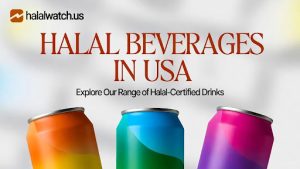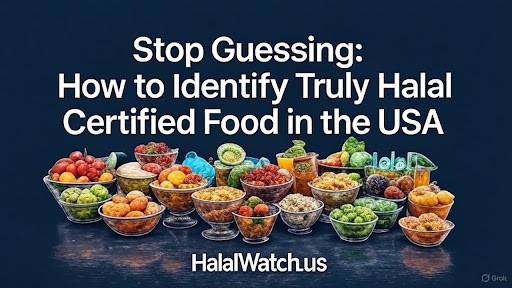For millions of Muslims living in the United States, finding genuinely halal-certified food can feel like navigating a maze. With grocery store shelves packed with products bearing various symbols and claims, how can you be certain that what you’re purchasing meets authentic Islamic dietary standards? The answer lies in understanding the certification process and knowing what to look for.
Understanding Halal Certification Standards
Halal certification is far more than a simple label—it represents a comprehensive system ensuring food products comply with Islamic law. In the USA, multiple organizations provide halal certification, but not all certifications are created equal. Authentic halal certificate for food products requires rigorous inspection of ingredients, processing methods, and facility protocols.
The challenge for American Muslim consumers is that the term “halal” isn’t federally regulated like “organic” or “kosher.” This means anyone could theoretically place a halal symbol on their product without proper verification. This is why understanding food standards halal certification becomes crucial for making informed choices.


Key Elements of Legitimate Halal Certification
When examining products for halal certification, look for these essential components:
Recognized Certification Body: Legitimate halal-certified products will display the logo of an established certification organization. In the USA, reputable certifiers include the Islamic Food and Nutrition Council of America (IFANCA), Halal Transactions of Omaha (HTO), Islamic Services of America (ISA), and the Halal Food Council USA (HFC-USA). These organizations maintain strict standards and conduct regular audits.
Certification Number: Authentic certifications include a unique identification number that can be verified. This number connects the product to official documentation and inspection records. If a product displays a halal symbol without any identifying information, approach it with caution.
Clear Labeling: Properly certified products will clearly state which certifying body has approved them. The logo should be crisp, professional, and accompanied by the organization’s name—not just a generic crescent moon or Arabic text.
Updated Certification: Halal certifications expire and require renewal. Check the manufacturer’s website or contact the certifying organization to confirm the certification is current.
The Importance of Halal Beverages Certification
While much attention focuses on meat products, halal beverages certification deserves equal scrutiny. Many consumers assume all drinks are automatically halal, but this isn’t always the case. Beverages may contain alcohol-based flavorings, animal-derived ingredients like gelatin or carmine, or be processed using equipment that handles non-halal substances.
Halal certification for beverages examines every aspect of production: the water source, flavoring agents, preservatives, manufacturing equipment, and storage facilities. Energy drinks, sports beverages, flavored teas, and even some fruit juices may contain questionable ingredients that only thorough certification can address.
When shopping for beverages, apply the same verification standards you would for any food product. Look for legitimate certification marks, and don’t assume that “natural” or “vegetarian” automatically means halal.


Red Flags to Watch For
Savvy consumers should be alert to warning signs that might indicate questionable or false certification:
Generic Symbols: Be wary of products displaying only a crescent moon, the word “halal” in English or Arabic, or other generic Islamic symbols without identifying a specific certifying organization.
Self-Certification: Some manufacturers claim their products are halal without third-party verification. While the owner’s Muslim identity might provide some assurance, professional certification offers transparent accountability.
Vague Ingredient Lists: Products that list ambiguous ingredients like “natural flavors,” “enzymes,” or “processing aids” without halal certification may contain animal-derived components from non-halal sources.
Too Good to Be True: If a product category that typically requires careful sourcing—like gelatin-based candies or enzyme-heavy cheeses—suddenly appears halal without certification details, investigate further before purchasing.
Verifying Certification: Practical Steps
Don’t rely solely on package labels. Take these additional steps to confirm authenticity:
Visit Certifier Websites: Most halal certification organizations maintain online databases of certified products and companies. A quick search can confirm whether a product’s certification is legitimate.
Contact the Certifier Directly: If you have doubts, reach out to the certification organization. They can verify whether they’ve certified a specific product and provide details about their inspection process.
Check Company Websites: Responsible manufacturers proudly display their halal credentials online, often providing certificate copies and details about their certification.
Use Mobile Apps: Several smartphone applications now help consumers verify halal certification by scanning barcodes or searching product databases.
The Global Perspective on American Halal Standards
The USA presents unique challenges for halal certification due to its diverse food industry and lack of federal oversight. However, American halal certifiers often maintain standards that meet or exceed international requirements. Many US-certified products are accepted in Muslim-majority countries, demonstrating the rigor of American halal certification processes.
Understanding that food standards halal certification in America operates through private organizations rather than government agencies helps explain the variation in certification marks you’ll encounter. This system requires consumers to be informed and proactive.


Making Confident Choices
Armed with knowledge about legitimate halal certification, you can shop with confidence rather than guesswork. Focus on products bearing recognized certification marks, verify credentials when in doubt, and support companies that invest in transparent, rigorous certification processes.
Remember that the halal certificate for food products represents more than compliance—it reflects a manufacturer’s commitment to serving the Muslim community with integrity. By choosing properly certified products, you’re not just following religious obligations; you’re supporting ethical business practices and encouraging more companies to seek legitimate certification.
The path to identifying truly halal-certified food doesn’t require expertise in Islamic law or food science—it simply requires knowing what questions to ask and where to find answers. With major American retailers increasingly stocking certified halal products and more manufacturers seeking certification, the landscape continues to improve for Muslim consumers.
Stop guessing and start verifying. Your peace of mind and religious observance deserve nothing less than genuine, properly certified halal products.

